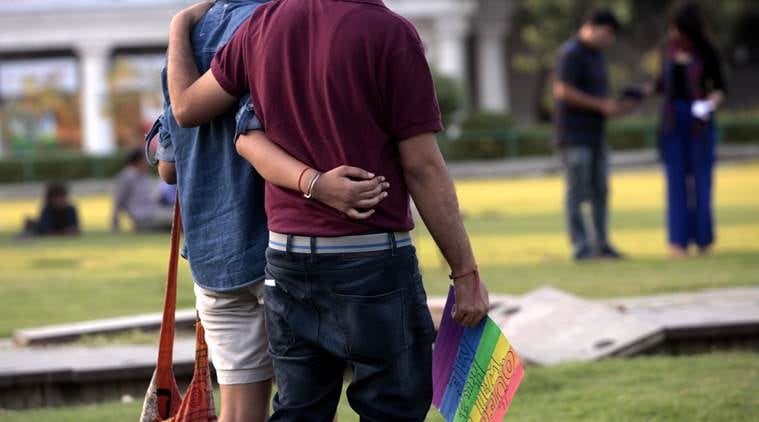 Paritcipants in a Gay Pride Parade in New Delhi in 2015. (Express Photo By Amit Mehra)
Paritcipants in a Gay Pride Parade in New Delhi in 2015. (Express Photo By Amit Mehra)
The government’s affidavit on Section 377 was cheered as it didn’t oppose the decriminalisation of homosexuality, but it also ensured the BJP didn’t upset its support groups. In other news, Bihar has watered down its prohibition law and it may be the family of a drug overdose victim in Punjab that sparked a fresh battle against narcotics speak up.
The government’s affidavit on Section 377: What you didn’t see
While the government’s affidavit on striking down a provision criminalising homosexuality brought cheers, there was a lot of thought that went into it. Ravish Tiwari writes that the carefully worded affidavit was aimed at acknowledging changing public opinion while not upsetting core support bastions of the party, including the RSS. The affidavit, he points out, while saying that the government wouldn’t oppose the decriminalisation of homosexuality asked that no other issue or rights are considered.
Bihar waters down prohibition law
After an investigation by The Indian Express revealed that underprivileged were most affected by the imposition of prohibition in Bihar, the state government on Tuesday cleared amendments to the law to dilute some of its most harsh provisions. Sources told The Indian Express that at least five provisions under the law could be watered down, including those related to arrest of first-time offenders, “arrest of all adults” of a family, and seizure of house/ vehicle where liquor is recovered.
Also read the investigative series on prohibition in the state.
The story behind a video that inspired Punjab’s anti-drug drive
Balwinder Singh, a 22-year-old, was found dead on June 23 in a Faridkot garbage dump in Punjab with a syringe in his hand. However, a viral video of his mother crying inconsolably next to his body is seen as having prompted outrage that resulted in the Punjab government stepping up its battle against drugs.
Adil Akhzer visits the family of Balwinder who says they have no qualms about admitting he died of drug overdose, given how many lives the menace claims.
Luka Modric on what inspired Croatia against England
“All these words from them we take, we were reading and we were saying: ‘OK, today we will see who will be tired.’ They should be more humble and respect their opponents more.” – Croatia’s captain Luka Modric on how the English press motivated his team’s hard-fought victory against England in the semi-finals of the World Cup.
Croatia beat England 2-1, and the match was sealed by a Mario Mandzukic goal in extra time. As many pointed out on social media, the only thing coming home for England finally will be a plane full of their soccer players.
Delhi Confidential: Discomfort over Jio University
The awarding of Institute of Eminence status to the unbuilt Jio University is making even some BJP leaders uncomfortable.
A senior BJP leader confessed that after reading the report in newspapers, his daughter had peppered him with questions, and that his bid to defend the move was in vain. “If I could not convince my daughter, how will I defend the government’s move to anyone, including a party worker, who raises questions,” he wondered.
Rethinking maternity leave, Kejriwal should control Delhi ‘services’, Punjab’s misguided war on drugs: The think pieces
A recent study found companies were less likely to hire women of child-bearing age due to a new law that requires them to provide extended maternity leave. The solution may lie in tweaking paternity leave benefits, creches and greater sharing of responsibility by men, writes Bina Agarwal.
Despite the Supreme Court verdict, the Lieutenant Governor of Delhi and AAP are still at war over the transfer of officials. While the L-G maintains that he has the authority to transfer officials, PDT Achary writes that it’s not the case. The former secretary-general of the Lok Sabha writes that the power rests with the Kejriwal government.
Read the column
As Punjab embarks on its own war on drugs with suggested mandatory tests for government employees and a stronger crackdown, a police officer writes on why there’s no guarantee of success. IPS officer Abhinav Kumar writes worldwide the debate has shifted on the police-led enforcement of drug prevention, and there needs to be greater reflection based on accurate data about the drug problem.